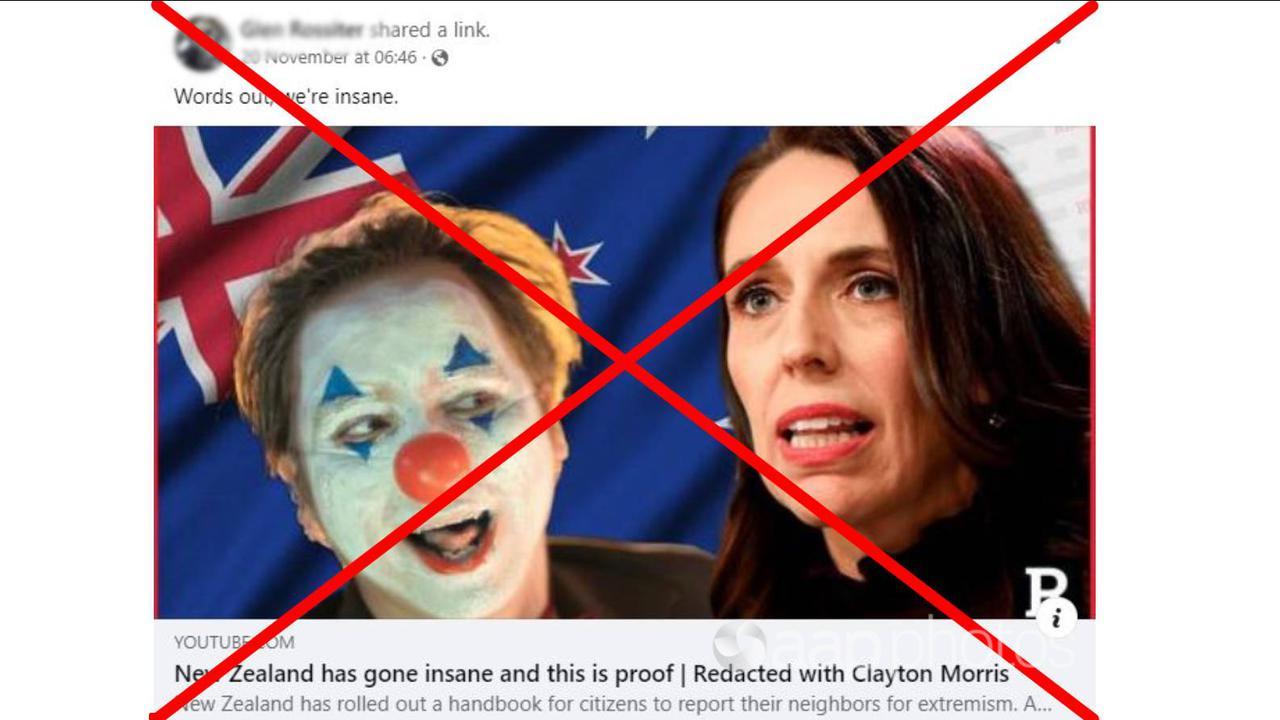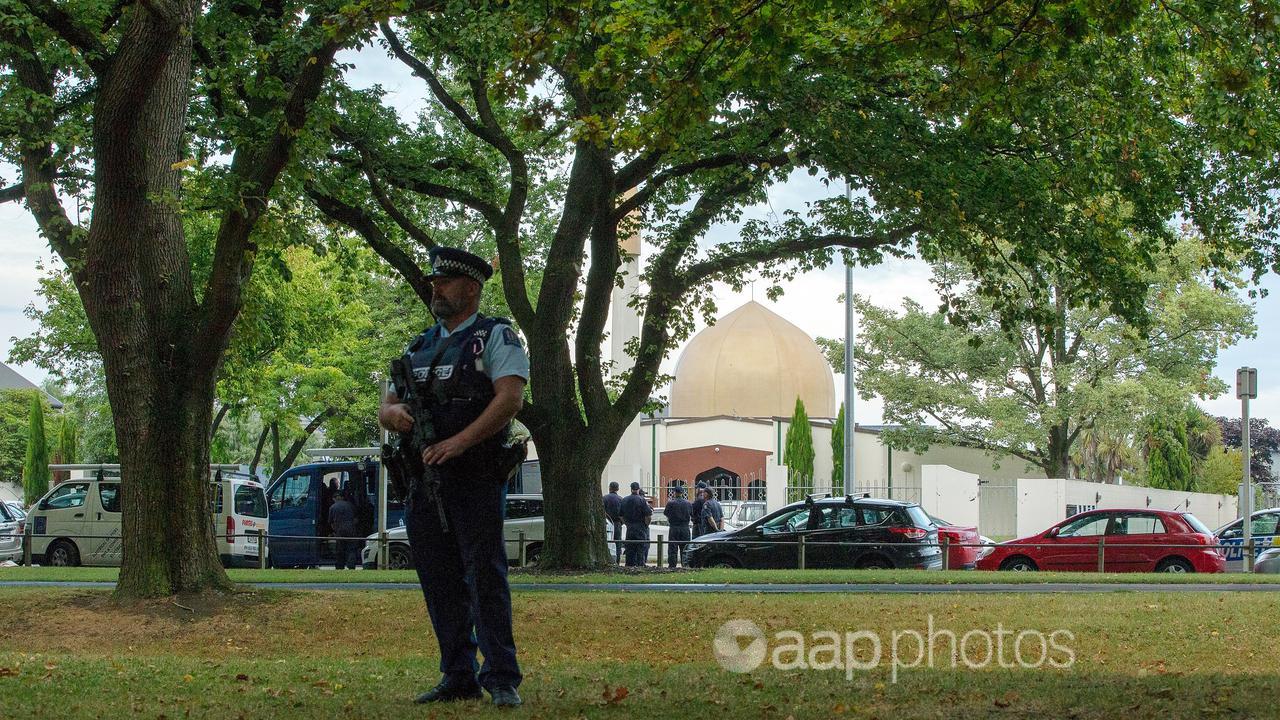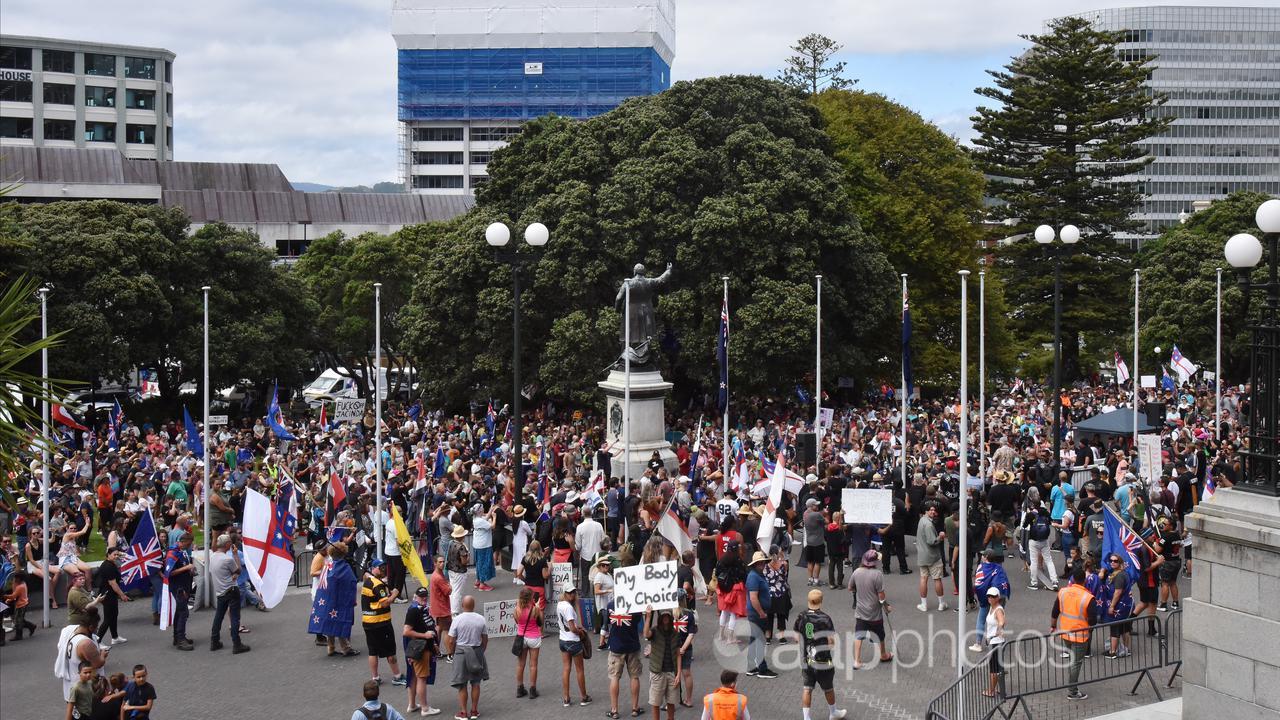A video shared to Facebook claims fresh guidance from the New Zealand Security Intelligence Service (NZSIS) is encouraging Kiwis to dob in fellow citizens who don’t agree with government COVID-19 measures.
The video’s presenters refer to the NZSIS’s October 2022 booklet, “Know the signs: a guide for identifying signs of violent extremism”, and claim it also urges citizens to report those who have not been vaccinated or want their children to go to school during health restrictions.
But the claims are false. The booklet makes clear, and experts confirmed, the guidance only relates to reporting those suspected of potential violent forms of extremism.

The video (archived here) was posted by US-based YouTube channel Redacted which has 1.45 million subscribers.
It has been shared on Facebook, including on the New Zealand Centre for Political Research page.
“Let’s talk about New Zealand,” host Clayton Morris says in the video before declaring “they’ve lost their mind”.
He then claims news in NZ is “censored” before telling viewers about the Know the signs document.
“It’s really, really troubling…this week New Zealand Intelligence Service has released new booklets telling the public that if they see something, say something.
“It would be one thing if it was like, ‘hey in this booklet here’s a little tip. If you see somebody making a bomb, maybe you say something about it’… but if my neighbour didn’t agree with COVID lockdowns or my neighbour decided to not get vaccinated or my neighbour was maybe organising a protest against government mandates around COVID…”
Co-host Natali Morris then interjects, adding: “Or maybe even more innocuous than that, if my neighbour was saying ‘I really want my kids to go to school despite lockdown measures. I really don’t want my children to wear masks in schools’. Then that is something what the booklet calls them (sic) is how to recognise extremists.”
Mr Morris then performs a mock telephone call, pretending to be a parent calling the intelligence services to report a neighbour who wants their children to go to school.
A NZSIS representative told AAP FactCheck via email that the claim is false.
“Our guide is publicly available online, and you will see that it does not ask the public to report anyone for opposing COVID-19 health measures.
“To be clear, we are not interested in (or indeed permitted legally to investigate) people who are simply exercising their democratic right to protest against, or oppose, government policy.

“We are interested in knowing about people who may be exhibiting signs of mobilising towards an act of violent extremism.”
The booklet breaks down the signs of violent extremism across several categories including mindset and ideology, research and planning and unusual behaviour changes.
Among the indicators include watching instructional videos on making weapons, receiving money from violent extremist groups and inscribing weapons with ideological symbols and or text.
However the booklet’s messaging on its scope is consistent throughout.
On page 8, it states: “This guide describes extremist behaviours only where they become, or there is an intention that they become, violent. Non-violent forms of extremism, however objectionable, lie outside the purpose of this booklet and outside NZSIS’s areas of focus.”
Deane Galbraith, a conspiracy theory expert from the University of Otago, said the video was “promoting gross misinformation”.
“The booklet makes clear that unless words or actions are linked to violence, they do not consider them, of themselves, to be signs of violent extremism,” Dr Galbraith told AAP FactCheck in an email.
“Political motivations are only a concern for the NZSIS, according to their booklet, where they are coupled with behaviour or communications that involve violent actions, words, or planning. Redacted has disappointingly resorted to misinformation and scaremongering of naïve viewers.”
Fabio Scarpello, a security expert from the University of Auckland, agreed, telling AAP FactCheck via email there is “no truth” to the claim.
In a statement to the Intelligence and Security Committee in March, NZSIS’s Director-General Rebecca Kitteridge mentioned those who opposed COVID measures as a potential threat.
However, she made clear this was only those who resorted to violent extremism.
“That is far from telling New Zealanders to pick up their phone and dial emergency services every time they spot a Christian or a Green Party supporter or a social media influencer protesting face-masks,” Dr Galbraith said. “That would be ridiculous.”
The Verdict
The claim that New Zealand intelligence bosses are calling on citizens to report fellow Kiwis if they don’t agree with government COVID lockdowns, are planning a protest or just want to send their children to school without a mask is false.
The NZSIS’s Know the signs booklet makes clear it is only concerned with reports of potential violent extremism.
Security experts confirmed this and accused the video of spreading misinformation.
False – The claim is inaccurate.
* AAP FactCheck is an accredited member of the International Fact-Checking Network. To keep up with our latest fact checks, follow us on Facebook, Twitter and Instagram.
All information, text and images included on the AAP Websites is for personal use only and may not be re-written, copied, re-sold or re-distributed, framed, linked, shared onto social media or otherwise used whether for compensation of any kind or not, unless you have the prior written permission of AAP. For more information, please refer to our standard terms and conditions.


















